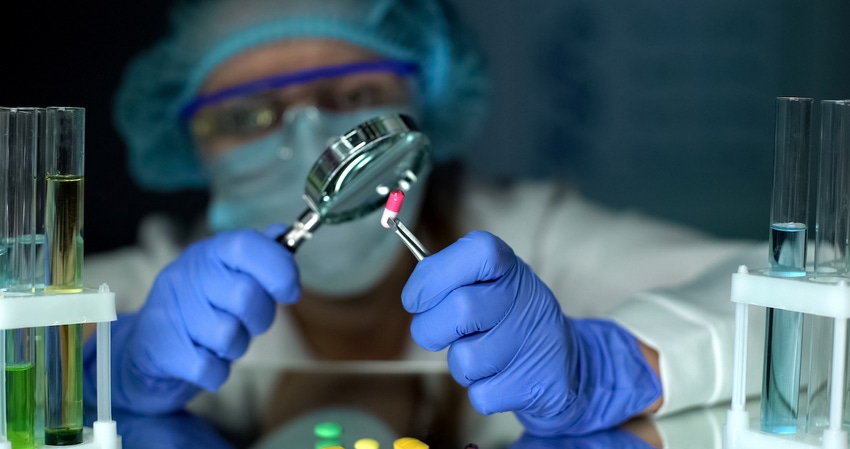Independent testing of bromelain products bought on Amazon found most of them to be severely understrength.

Supplement manufacturer NOW has released a new round of testing results that shows few of the 20 brands sold on Amazon that were tested came close to meeting label claims for potency. It was one of the most dismal showings NOW has had in the six-year program.
Bromelain is a proteolytic enzyme found in pineapples marketed for healthy digestion or joint comfort. The products are generally labeled with a milligram content for the bromelain extract as well as a specification of the activity of that extract, which in the case of bromelain is expressed as GDU, or Gelatin Digesting Units.
A typical formula on the market is labeled at 500 mg (1 gram for the standard two-capsule dose) and a 2,400 to 3,000 GDU activity claim, which covers the two-capsule serving.
Bromelain had originally been isolated from pineapple in the 1890s by Venezuelan and American chemists. It is usually produced from the stem of the plant, though the enzyme is present in other parts of the plant as well.
As it has done with other product categories, NOW purchased 19 products (all lesser-known brands) on Amazon and included a bottle of its own bromelain supplement (also sold on Amazon) for comparison purposes.
The GDU potency of the products was determined by a specific United States Pharmacopeia (USP) method. Because of its specialized nature, NOW chose to tap a third-party laboratory for testing, Venture Labs (www.ventlabs.com), based in Lexington, Ky.
Expensive ingredient opens door for adulteration
Even though the enzyme is derived from a waste stream of pineapple product manufacturing, which is focused on the fresh fruit and juice, it is still a somewhat expensive material. That was one of the reasons Bloomingdale, Ill.-based NOW chose it for this round of its program, which is unique in the industry because NOW is transparent about the names of the products and manufacturers that have been tested.
Expensive ingredients are often cited as low-hanging fruit for adulteration.
“We chose Bromelain because raw material costs increased in recent years and we guessed that some suppliers or brands may knowingly, or unknowingly, be selling low potency products,” said Dan Richard, NOW’s vice president of global sales and marketing, who has been spearheading this Amazon testing program since its beginning in 2017.
“Bromelain is a fairly expensive enzyme and testing is more difficult than other basic vitamins and minerals,” Richard added. “We assumed that most lower priced, lesser-known brands do not test for Bromelain potency at all, and the results below seem to confirm this educated guess.”
Only five brands met label claim
The testing revealed only four brands conformed to standard industry practice in which overages are included to ensure the products meet potency claim at the end of shelf life.
NOW’s own product had 121% of the claimed 2,400 GDU activity, and three other products had 110%, 122% and 144%. A fourth product tested at 100% of label claim.
That was the end of the good news.
The bad news—among the worst results that NOW has found so far in its years-long testing program—is more than half (12 out of 20) of the products had 10% or less of the claimed GDU activity.
Three supplement products had essentially no activity, less than the detection limit of 10 GDU per capsule. For comparison, NOW’s product yielded results at 1,451 GDU/cap.
Those products—with less than the detection limit—are marketed by Earthborn Elements, based in Oregon, and We Like Vitamins, based in Texas. A third company was identified by NOW as Pure Supplements in Lindon, Utah, but it also apparently goes by the names of Pure Original Ingredients and Pure Organic Ingredients.
The brand holders of the three bottom-ranking products were contacted for comment, but they did not respond in time for publication.
Program looks at problem products, not on market cross section
Richard said NOW does not test brands well known for their regulatory compliance and quality control and instead focuses on those products mostly likely to be deficient. The plan is to widen the net in the future to assess the quality of products on Walmart’s online sales site.
“NOW has been testing products sold by lesser-known brands for six years and consistently finds most suspect products failing potency testing,” Richard explained. “We have been testing products exclusively found on Amazon, but will begin adding unknown brands found on Walmart.com in the future. We are finding that low-potency products often spend the most dollars marketing on both Amazon and Walmart.com.”
About the Author(s)
You May Also Like






.png?width=800&auto=webp&quality=80&disable=upscale)